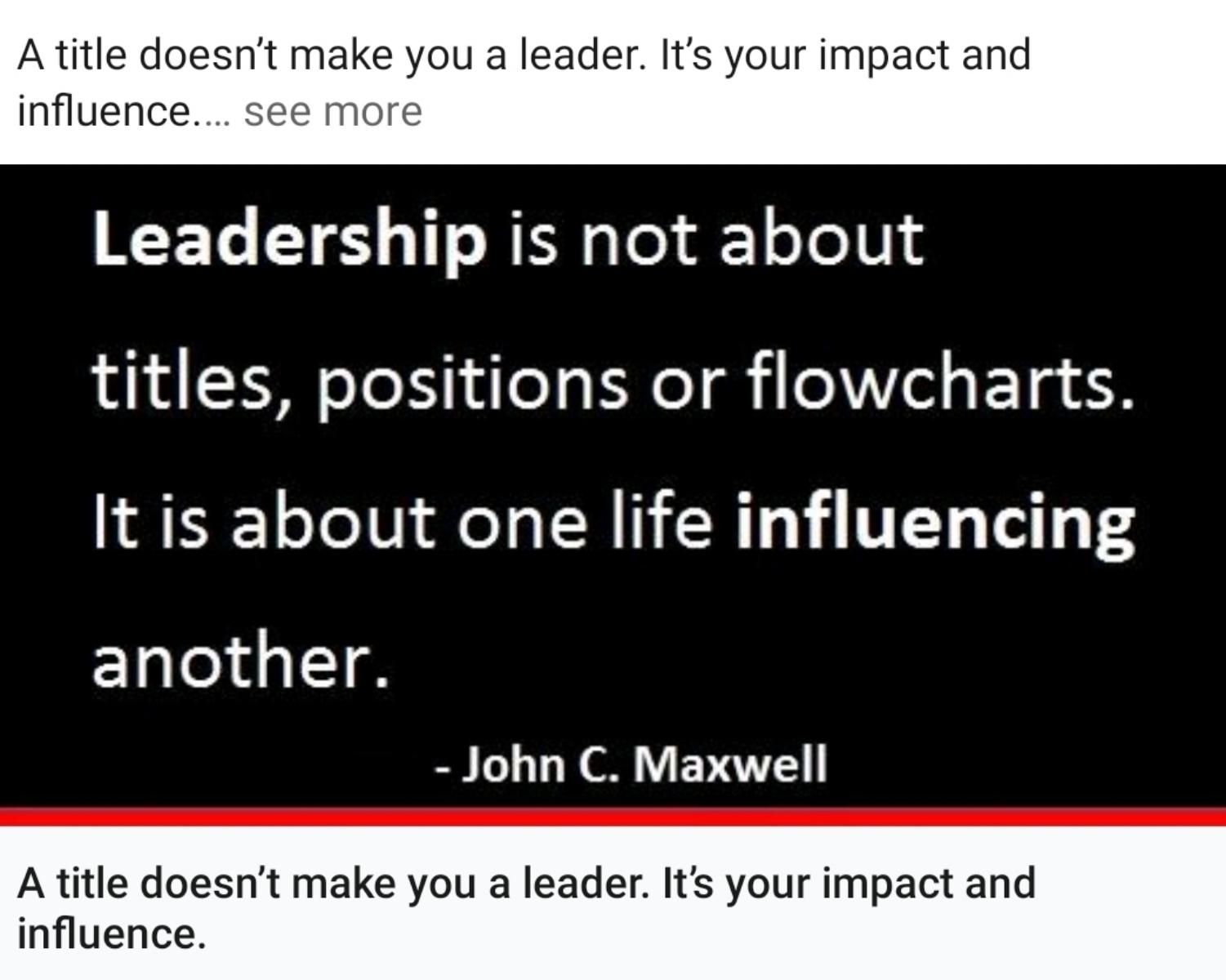Build relationships
Step out of your comfort zone and attempt to interact with everyone you work with.
Introduce yourself and always accept happy hour invitations. These are the individuals who are likely to be your networking connections for years to come.
257
1.44K reads
CURATED FROM
IDEAS CURATED BY
The idea is part of this collection:
Learn more about personaldevelopment with this collection
How to establish a positive team culture
How to collaborate effectively
How to build trust with a new team
Related collections
Similar ideas to Build relationships
A LEADER IS.....
- Treat everyone as you would wish to be treated . It is important to put yourself in other people’s shoes.
- Go outside your comfort zone . Our interns found herself as the only person of color in a boardroom with 40 people. She felt like she didn’t bel...
5. Maintaining Healthy Relationships
In this hustle and bustle of life, maintaining healthy relationships can be quite a challenge. But if you’ve managed to do it, then you’re more accomplished than you realize.
Healthy relationships aren’t just about being with people who make you happy. They’re about being with people who he...
5 Steps to Change Your Brain for Connection
If you commit to having deep personal connections , you can intentionally create those relationships by following this five-step process for changing your brain.
- Gather awareness of how you are feeling.
- Ask yourself “why” questions and reflect on any unconscious tho...
Read & Learn
20x Faster
without
deepstash
with
deepstash
with
deepstash
Personalized microlearning
—
100+ Learning Journeys
—
Access to 200,000+ ideas
—
Access to the mobile app
—
Unlimited idea saving
—
—
Unlimited history
—
—
Unlimited listening to ideas
—
—
Downloading & offline access
—
—
Supercharge your mind with one idea per day
Enter your email and spend 1 minute every day to learn something new.
I agree to receive email updates

